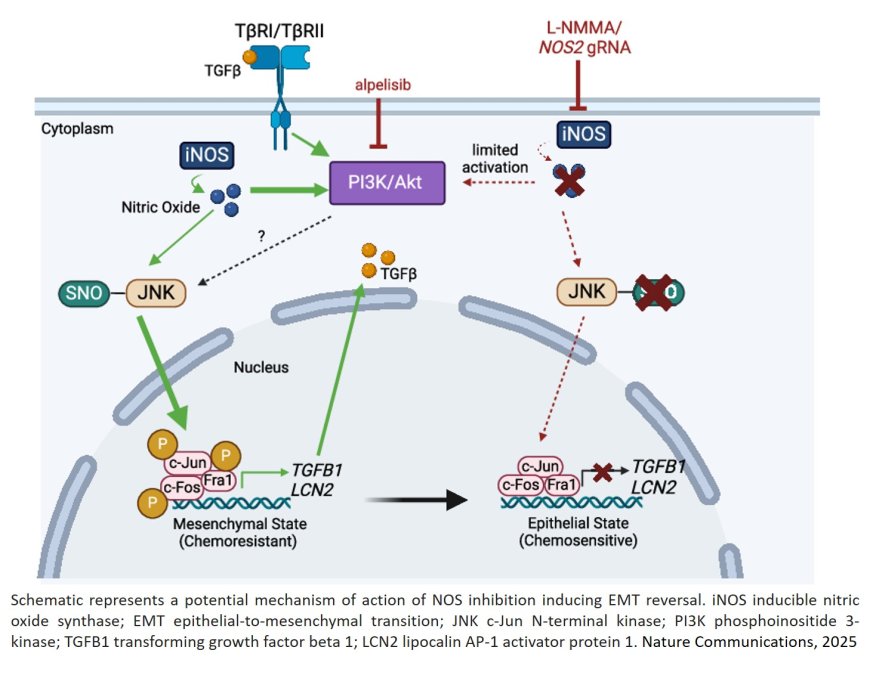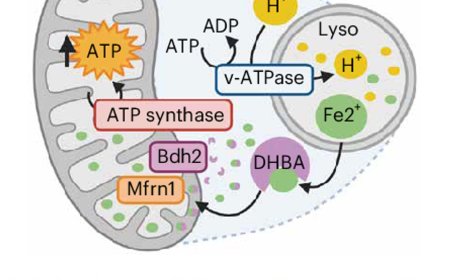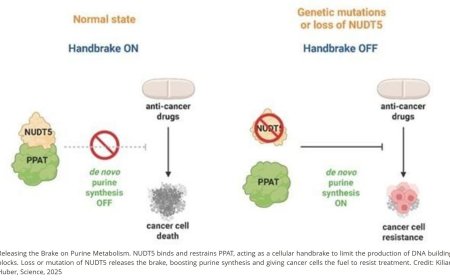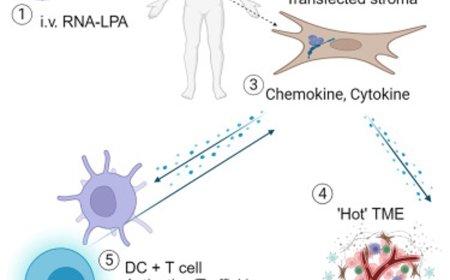Combined inhibition of iNOS and PI3K to treat metaplastic breast cancer

A national study seeking more effective treatment for deadly metaplastic breast cancer has identified two inhibitor drugs with the potential to interrupt disease progression.
A team of researchers examined the biology of metaplastic breast cancer, comparing it to non-metaplastic triple negative breast cancer. They discovered metaplastic breast cancers typically exhibit two unique signaling pathways in their cell interaction.
Researchers were able to disrupt these pathways using a class of inhibitors typically used to treat advanced cancers - phosphoinositide 3 kinase inhibitor (P13K) - in combination with a nitric oxide inhibitor (NOS) typically used to treat septic shock, cardiovascular disease and other conditions. When introduced to the cell, these drugs disrupted these pathways, making the treatment more effective.
Mechanistically, NOS blockade leads to a decrease in the S-nitrosylation of c-Jun NH2-terminal kinase (JNK)/c-Jun complex to repress its transcriptional output, leading to enhanced tumor differentiation and associated chemosensitivity. As a result, combined NOS and PI3K inhibition with taxane targets MpBC stem cells and improves survival in patient-derived xenograft models relative to single-/dual-agent therapy.
Similarly, biopsies from MpBC tumors that responded to L-NMMA+taxane therapy showed a post-treatment reversal of epithelial-to-mesenchymal transition and decreased stemness.
A rare and aggressive form of disease, metaplastic breast cancer typically grows faster and is more likely to metastasize or spread to other parts of the body than other breast cancers. It is also more likely to recur after successful initial treatment. Patients with metaplastic breast cancer will often receive the same treatment as a patient with triple negative breast cancer, another aggressive and deadly form of the disease. However, metaplastic breast cancer often does not respond well.
The findings are in the article published in Nature Communications.
“This is a significant finding because it offers a promising therapeutic option for one of the most aggressive and difficult-to-treat subtypes of breast cancer,” said the author. “We have the potential to improve outcomes for patients who currently face limited treatment options and poor prognoses, marking an important step forward in cancer research and therapy.”
The first author hopes these findings will help develop a specific care plan for metaplastic cancer patients and improve long-term survival of the disease.
“Our findings highlight a promising therapeutic combination that could hopefully change the landscape of metaplastic breast cancer treatment. Translating this research into a National Cancer Institute-funded clinical trial is crucial to improving outcomes for patients facing this rare and aggressive disease. Moreover, this approach may have broader implications, potentially benefiting patients with other cancers with similar biology,” said the first author.
https://www.nature.com/articles/s41467-024-54651-x
https://sciencemission.com/nos-inhibition-sensitizes-metaplastic-breast-cancer













